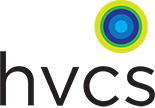From the Wall Street Journal. View the original article here (paid subscription may be required)
Money is running out to help AIDS patients pay rents; schools are also on edge
Members of the New York City Department of Probation distributed food at a Bronx pantry in late April.
By Jimmy Vielkind
ALBANY, N.Y.—Social service providers say they are struggling as New York’s state government withholds grant payments in response to the novel coronavirus crisis.
Gov. Andrew Cuomo’s budget division froze payments to municipalities and nonprofit agencies, and withheld scheduled raises to some workers in April after revenues crashed as a result of the pandemic.
State revenues are $13.3 billion below expectations, according to the most recent estimate. The state has held up nearly $4 billion of payments, as the Democratic governor pushes Congress for more aid. The state also borrowed $1 billion last month to help it remain solvent until income tax payments, which were previously due in April, start arriving in July. Officials plan to borrow an additional $3.5 billion this week.
As the state holds on to cash, some providers said they are contemplating layoffs and other measures. ACR Health, a Syracuse-based nonprofit that services AIDS patients and others throughout central New York, relies on state grants for almost 88% of its $12 million annual budget, Executive Director Wil Murtaugh said.
Mr. Murtaugh said his group is owed more than $1 million for services that were performed. As a result, ACR has been unable to make rental assistance payments for 221 HIV-positive people in private facilities.
“I don’t think it’s smart to have immunocompromised people be homeless,” Mr. Murtaugh said in an interview. Mr. Cuomo, through an executive order, has put a moratorium on evictions through Aug. 20.
The U.S. House of Representatives, controlled by Democrats, last month approved $1 trillion in additional aid for state and local governments, including $35 billion for New York, as part of a $3 trillion economic relief package.
Republicans who control the Senate, however, are skeptical about sending money to states for expenses they see as unrelated to the pandemic. The Senate is expected to approve another relief bill by the beginning of August, with the size and scope of more assistance to states and municipalities set to be one of the central areas of contention between the parties.
ACR Health is part of a network of New York agencies created in the 1980s in response to the AIDS epidemic. Their mandate has subsequently expanded, said Andrea Straus, executive director of Hudson Valley Community Services Inc.
Her organization has 11 different state contracts that support the work of 71 of the organization’s employees. Ms. Straus said a loan through the federal Paycheck Protection Program has helped her organization avoid layoffs, but it will re-evaluate the situation this summer.
“Our staff are essential, but they’re not going to get paid? It seems so counterintuitive,” Ms. Straus said. “They owe us $908,634.40. And there’s about another $400,000 for May.”
Freeman Klopott, a spokesman for the state Budget Division, said the payment delays could translate into permanent reductions of 20%. “This is exactly why we have been calling on the federal government to provide the resources states need—without federal action, the most vulnerable among us will suffer,” he said.
School districts and municipalities are also on edge. The state was due to release $247 million of aid to Buffalo, Rochester and Syracuse on June 25, but Budget Director Robert Mujica previously told The Wall Street Journal that the grants wouldn’t be released without federal action.
“Uncertainty abounds,” said Peter Baynes, executive director of the New York State Conference of Mayors, which represents city and village leaders.
New York officials did provide clarity this week for road contractors when they allocated $544 million that will be sent to municipalities for paving. Frank Suits Jr., president of the Suit-Kote construction firm based in Cortland, N.Y., said he was preparing to lay off hundreds of workers who normally spend the summer working on road projects. He has now scrapped those plans.
Wyoming County High Superintendent Todd Gadd said even though money isn’t expected until later in the year, municipalities will now execute contracts and fix roads during New York’s limited summer construction season. The state warned, though, that the allocations could be reduced by 20%.
“It’s good we can get projects started, but there’s still that potential cut looming,” Mr. Gadd said.
For other organizations, the payment delays are closer to an annoyance than a cataclysm. Food Pantries for the Capital District, which helps transport food and supplies to 65 pantries in the Albany area, last year received a $15,000 state grant to fund the operation of an additional delivery truck.
Natasha Pernicka, the organization’s executive director, said the state is supposed to reimburse it $970 a month for lease payments. The group has had to eat the cost.
“A lot of organizations don’t have flexibility, and their cash flows are very tenuous,” Ms. Pernicka said. “The intention of donors right now is to pay for Covid response—not because we’re waiting for state payments to come through.”

